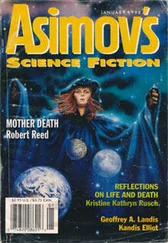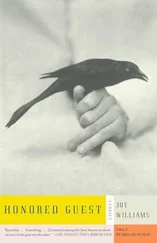Joy Williams - Taking Care
Здесь есть возможность читать онлайн «Joy Williams - Taking Care» весь текст электронной книги совершенно бесплатно (целиком полную версию без сокращений). В некоторых случаях можно слушать аудио, скачать через торрент в формате fb2 и присутствует краткое содержание. Год выпуска: 2010, Издательство: Vintage, Жанр: Современная проза, на английском языке. Описание произведения, (предисловие) а так же отзывы посетителей доступны на портале библиотеки ЛибКат.
- Название:Taking Care
- Автор:
- Издательство:Vintage
- Жанр:
- Год:2010
- ISBN:нет данных
- Рейтинг книги:5 / 5. Голосов: 1
-
Избранное:Добавить в избранное
- Отзывы:
-
Ваша оценка:
- 100
- 1
- 2
- 3
- 4
- 5
Taking Care: краткое содержание, описание и аннотация
Предлагаем к чтению аннотацию, описание, краткое содержание или предисловие (зависит от того, что написал сам автор книги «Taking Care»). Если вы не нашли необходимую информацию о книге — напишите в комментариях, мы постараемся отыскать её.
Taking Care — читать онлайн бесплатно полную книгу (весь текст) целиком
Ниже представлен текст книги, разбитый по страницам. Система сохранения места последней прочитанной страницы, позволяет с удобством читать онлайн бесплатно книгу «Taking Care», без необходимости каждый раз заново искать на чём Вы остановились. Поставьте закладку, и сможете в любой момент перейти на страницу, на которой закончили чтение.
Интервал:
Закладка:
One afternoon, Jones had come home and found his wife sitting in the garden, weeping. She had been transplanting flowers, putting them in pots before the first frost came. There was dirt on her forehead and around her mouth. Her light clothes felt so heavy. Their weight made her body ache. Each breath was a stone she had to swallow. She cried and cried in the weak autumn sunshine. Jones could see the veins throbbing in her neck. “I’m dying,” she said. “It’s taking me months to die.” But after he had brought her inside, she insisted that she felt better and made them both a cup of tea while Jones potted the rest of the plants and carried them down cellar. She lay on the sofa and Jones sat beside her. They talked quietly with one another. Indeed, they were almost whispering, as though they were in a public place surrounded by strangers instead of in their own house with no one present but themselves. “It’s the season,” Jones said. “In fall everything slows down, retreats. I’m feeling tired myself. We need iron. I’ll go to the druggist right now and buy some iron tablets.” His wife agreed. She wanted to go with him, for the ride. Together they ride, through the towns, for miles and miles, even into the next state. She does not want to stop driving. They buy sandwiches and milkshakes and eat in the car. Jones drives. They have to buy more gasoline. His wife sits close to him, her eyes closed, her head tipped back against the seat. He can see the veins beating on in her neck. Somewhere there is a dreadful sound, almost audible. “First I thought it was my imagination,” his wife said. “I couldn’t sleep. All night I would stay awake, dreaming. But it’s not in my head. It’s in my ears, my eyes. They ache. Everything. My tongue. My hair. The tips of my fingers are dead.” Jones pressed her cold hand to his lips. He thinks of something mad and loving better than he — running out of control, deeply in the darkness of his wife. “Just don’t make me go to the hospital,” she pleaded. Of course she will go there. The moment has already occurred.
Jones is writing to his daughter. He received a brief letter from her this morning, telling him where she could be reached. The foreign postmark was so large that it almost obliterated Jones’s address. She did not mention either her mother or the baby, which makes Jones feel peculiar. His life seems increate as his God’s life, perhaps even imaginary. His daughter tells him about the town in which she lives. She does not plan to stay there long. She wants to travel. She will find out exactly what she wants to do and then she will come home again. The town is poor but interesting and there are many Americans there her own age. There is a zoo right on the beach. Almost all the towns, no matter how small, have little zoos. There are primarily eagles and hawks in the cages. And what can Jones reply to that? He writes Every thing is fine here. We are burning wood from the old apple tree in the fire place and it smells wonderful. Has the baby had her full series of polio shots? Take care. Jones uses this expression constantly, usually in totally unwarranted situations, as when he purchases pipe cleaners or drives through toll booths. Distracted, Jones writes off the edge of the paper and onto the blotter. He must begin again. He will mail this on the way to the hospital. They have been taking X-rays for three days now but the pictures are cloudy. They cannot read them. His wife is now in a real sickbed with high metal sides. He sits with her while she eats her dinner. She asks him to take her good nightgown home and wash it with a bar of Ivory. They won’t let her do anything now, not even wash out a few things. You must take care.
Jones is driving down a country road. It is the first snowfall of the season and he wants to show it to the baby who rides beside him in a small cushioned car seat all her own. Her head is almost on a level with his and she looks earnestly at the landscape, sometimes smiling. They follow the road that winds tightly between fields and deep pine woods. Everything is white and clean. It has been snowing all afternoon and is doing so still, but very very lightly. Fat snowflakes fall solitary against the windshield. Sometimes the baby reaches out for them. Sometimes she gives a brief kick and cry of joy. They have done their errands. Jones has bought milk and groceries and two yellow roses which lie wrapped in tissue and newspaper in the trunk, in the cold. He must buy two on Saturday as the florist is closed on Sunday. He does not like to do this but there is no alternative. The roses do not keep well. Tonight he will give one to his wife. The other he will pack in sugar water and store in the refrigerator. He can only hope that the bud will remain tight until Sunday when he brings it into the terrible heat of the hospital. The baby rocks against the straps of her small carrier. Her lips are pursed as she watches intently the fields, the grey stalks of crops growing out of the snow, the trees. She is warmly dressed and she wears a knitted orange cap. The cap is twenty-three years old, the age of her mother. Jones found it just the other day. It has faded almost to pink on one side. At one time, it must have been stored in the sun. Jones, driving, feels almost gay. The snow is so beautiful. Everything is white. Jones is an educated man. He has read Melville, who says that white is the colorless all-color of atheism from which we shrink. Jones does not believe this. He sees a holiness in snow, a promise. He hopes that his wife will know that it is snowing even though she is separated from the window by a curtain. Jones sees something moving across the snow, a part of the snow itself, running. Although he is going slowly, he takes his foot completely off the accelerator. “Look, darling, a snowshoe rabbit.” At the sound of his voice, the baby stretches open her mouth and narrows her eyes in soundless glee. The hare is splendid. So fast! It flows around invisible obstructions, something out of a kind dream. It flies across the ditch, its paws like paddles, faintly yellow, the color of raw wood. “Look, sweet,” cries Jones, “how big he is!” But suddenly the hare is curved and falling, round as a ball, its feet and head tucked closely against its body. It strikes the road and skids upside down for several yards. The car passes around it, avoids it. Jones brakes and stops, amazed. He opens the door and trots back to the animal. The baby twists about in her seat as well as she can and peers after him. It is as though the animal had never been alive at all. Its head is broken in several places. Jones bends to touch its fur, but straightens again, not doing so. A man emerges from the woods, swinging a shotgun. He nods at Jones and picks the hare up by the ears. As he walks away, the hare’s legs rub across the ground. There are small crystal stains on the snow. Jones returns to the car. He wants to apologize but he does not know to whom or for what. His life has been devoted to apologetics. It is his profession. He is concerned with both justification and remorse. He has always acted rightly, but nothing has ever come of it. He gets in the car, starts the engine. “Oh, sweet,” he says to the baby. She smiles at him, exposing her tooth. At home that night, after the baby’s supper, Jones reads a story to her. She is asleep, panting in her sleep, but Jones tells her the story of al-Boraq, the milk-white steed of Mohammed, who could stride out of the sight of mankind with a single step.
Jones sorts through a collection of records, none of which have been opened. They are still wrapped in cellophane. The jacket designs are subdued, epic. Names, instruments and orchestras are mentioned confidently. He would like to agree with their importance, for he knows that they have worth, but he is not familiar with the references. His daughter brought these records with her. They had been given to her by an older man, a professor she had been having an affair with. Naturally, this pains Jones. His daughter speaks about the men she has been involved with but no longer cares about. Where did these men come from? Where were they waiting and why have they gone? Jones remembers his daughter when she was a little girl, helping him rake leaves. What can he say? For years on April Fool’s Day, she would take tobacco out of his humidor and fill it with corn flakes. Jones is full of remorse and astonishment. When he saw his daughter only a few weeks ago, she was thin and nervous. She had torn out almost all her eyebrows with her fingers from this nervousness. And her lashes. The roots of her eyes were white, like the bulbs of flowers. Her fingernails were crudely bitten, some bleeding below the quick. She was tough and remote, wanting only to go on a trip for which she had a ticket. What can he do? He seeks her in the face of the baby but she is not there. All is being both continued and resumed, but the dream is different. The dream cannot be revived. Jones breaks into one of the albums, blows the dust from the needle, plays a record. Outside it is dark. The parsonage is remote and the only buildings nearby are barns. The river cannot be seen. The music is Bruckner’s Te Deum. Very nice. Dedicated to God. He plays the other side. A woman, Kathleen Ferrier, is singing in German. Jones cannot understand the words but the music stuns him. Kindertotenlieder. It is devastating. In college he had studied only scientific German, the vocabulary of submarines, dirigibles and steam engines. Jones plays the record again and again, searching for his old grammar. At last he finds it. The wings of insects are between some of the pages. There are notes in pencil, written in his own young hand.
Читать дальшеИнтервал:
Закладка:
Похожие книги на «Taking Care»
Представляем Вашему вниманию похожие книги на «Taking Care» списком для выбора. Мы отобрали схожую по названию и смыслу литературу в надежде предоставить читателям больше вариантов отыскать новые, интересные, ещё непрочитанные произведения.
Обсуждение, отзывы о книге «Taking Care» и просто собственные мнения читателей. Оставьте ваши комментарии, напишите, что Вы думаете о произведении, его смысле или главных героях. Укажите что конкретно понравилось, а что нет, и почему Вы так считаете.












